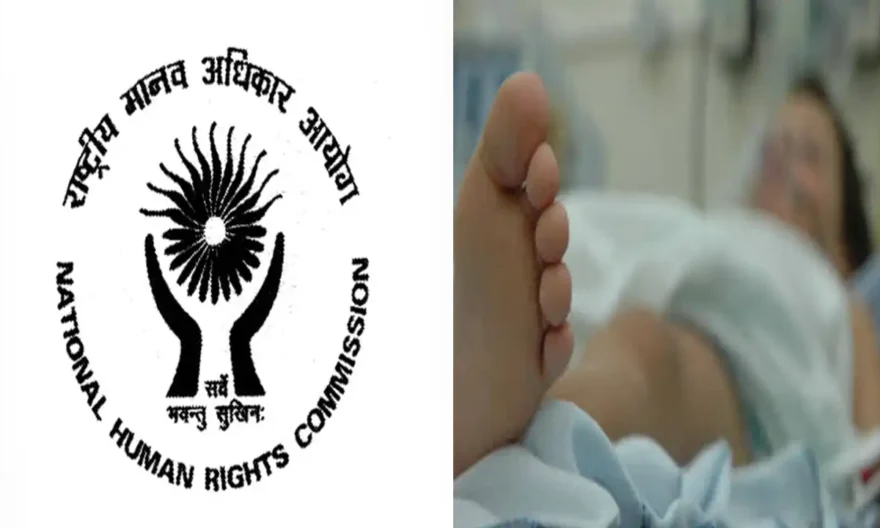
The National Human Right Commission (NHRC), India on Tuesday has taken suo motu cognizance of issues related to cremation & undignified treatment of dead bodies as raised by Dr. Jitendra Singh Shunty (member of Core Group of Human Right Defenders (HRD)).
Further, it has been involved for over 27 years in the free cremation of unclaimed dead bodies & related services. It issued notices to all the State Governments & Union Territories through their Chief Secretary and sought responses within a period of 6 weeks to know the extent they can ensure dignity for the dead by formulating policy if possible at their end or by the way of the administrative orders & strict implementations thereof by empowering various local authorities on the following points:
A. The material like wood, etc. required for the cremation of dead bodies should be provided free in all cremation grounds, throughout India, at least for the poor and needy families;
B. The cremation of dead bodies by CNG/Electric system, in electric cremation grounds, should be free to all the poor and needy persons, throughout India;
C. Most Hospitals are not having mortuaries resulting in the decomposition of dead bodies. It is necessary that the hospital have such facilities;
D. All Government or private hospitals should be directed to provide free transportation of the dead bodies to their respective residences.
E. Necessary orders/directions may please be issued to all the private hospitals that they may not hold the dead bodies hostage, due to non-payment of the medical bills by their families or for any other reason whatever may that be. Strict legal action should be taken against the offender hospitals, making dead bodies hostage.
Therefore, the report must also contain as to whether the States/UTs have taken steps about disseminating the information, sensitization, raising awareness, and training the staff dealing with the dead bodies in the humane aspect with a view to tackle the situation of unclaimed dead bodies. The report must specify steps that are taken or proposed to be taken related to the issuance of directives to the private hospitals for not retaining the dead bodies for non-payment of medical bills by the family members of the deceased.
The Commission annexed the notice that is Advisory on the “Right to Dignity of Dead” issued during the Covid -19 Pandemic to the authorities.
While issuing the notices, the Commission has observed that its undeniable that the Right to Dignity & Fair Treatment, under Article 21 of the Constitution of India, is not only available to the living man but also to his dead body. Civilization, over the years, has coupled with tradition, religion, and cultural practices that influenced the manner in which the dead bodies are being managed, both in times of war & peace. At the same time, the different communities and societies pay respect to the dead, through their respective religion and traditional practices, etc through legal frameworks.
It is underlined that honor and respect for the dead body is a basic recognition of inherent human rights of dignity, which an individual possesses prior to his death. The Undignified treatment and careless desecration of the dead body are highly condemnable by societies at a large scale, therefore, the importance that people place on the dead body reflects the humanitarian outlook of the society at its very core.
Further, the Commission has observed that it is conscious of the fact that Article 130 of the Fourth Geneva Convention states that the dead bodies must be honorably buried/cremated, according to respectable religious and cultural traditions of the person, if ascertainable. The Geneva Convention was ratified by India in 1950, making it legally binding to provide for explicit provisions relating to the dignified treatment and disposal of dead bodies.
Moreover, it becomes trite law that the right, encompassed or referred by Article 21 of the Constitution of India, can’t be waived, even on the death of a person, till the time, the corpse has been disposed of. The issue became of seminal importance during COVID-19 when the dead bodies were not being touched; even families/relatives were not ready to perform funeral/burial; the dead bodies were floated in the rivers without cremation, the Commission, therefore, came up with an Advisory “Right to Dignity of Dead”.




